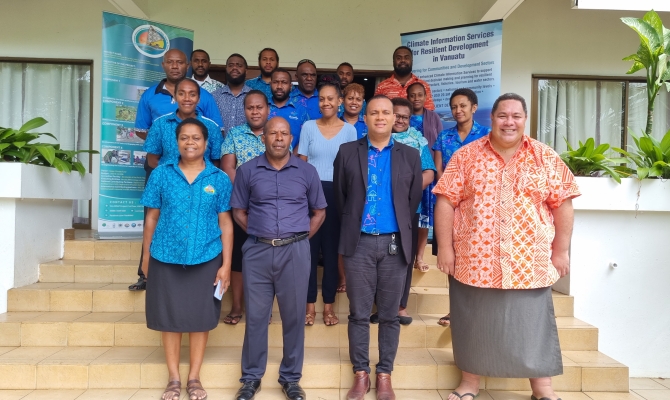
10 May 2024, Port Vila, Vanuatu - In a groundbreaking move aimed at bolstering Vanuatu's tourism industry against climate risks, the government has unveiled a Rapid Climate Risk Assessment Framework and methodology.
The pioneering framework, specifically tailored for the tourism sector, marks a significant step in proactively addressing the challenges posed by climate change to one of Vanuatu's key economic pillars.
The framework was the result of a collaborative effort between the Vanuatu government through the Department of Tourism, the Secretariat of the Pacific Regional Environment Programme (SPREP), Beca and key tourism stakeholders. It incorporates a rapid analysis of climate-related risks and their potential impacts on tourism infrastructure and services.
One of the standout features is its adaptability to various tourism sub-sectors, including eco-tourism, adventure tourism, and cultural tourism. By tailoring risk assessments to specific niches within the industry, Vanuatu aims to enhance resilience and sustainability across its diverse tourism offerings.
To showcase the practical application of the Rapid Climate Risk Assessment Framework, a Tourism Case Study was conducted in collaboration with dive industry experts. This case study delved into the intricacies of climate risks facing Vanuatu's tourism sector, such as extreme weather events, sea-level rise, and ecosystem degradation.
Engagement with key tourism stakeholders played a pivotal role in shaping the Tourism Case Study. Through extensive consultations, stakeholders identified critical information and potential gaps in existing risk assessments, ensuring that the framework is robust and fit for purpose.
The three-day workshop held from 29 April to 1 May 2024 to finalise the framework involved 18 representatives from the Department of Tourism, Department of Local Authorities, Vanuatu Meteorology and Geo-hazards Department and Tourism Provincial Officers.
"The tourism sector in Vanuatu is not immune to the impacts of climate change. Our collaborative efforts in developing this innovative framework underscores our commitment to safeguarding our natural and cultural assets while promoting sustainable tourism practices," said Ms Moirah Matou, VanKIRAP Project Manager
The workshop was officially opened by Mr Paul Pio, Director of the Department of Tourism. He said: “Climate change is one of the most pressing challenges of our time, affecting every corner of the globe. Its impact on industries like tourism, which is so vital to Vanuatu's economy, cannot be understated. The framework we are here to discuss represents a concerted effort to address these challenges head-on, to mitigate risks, and to build resilience in the face of a changing climate”.
The application of the Rapid Climate Risk Assessment Framework to the Tourism Case Study yielded valuable insights and actionable recommendations. These include investment in resilient infrastructure, adoption of climate-smart practices, and capacity building for tourism operators to effectively respond to climate-related challenges using climate information tools such as Vanuatu Climate Futures Portal.
As Vanuatu continues to position itself as a premier tourist destination, initiatives like the Rapid Climate Risk Assessment Framework demonstrate a proactive approach to ensuring the long-term viability and resilience of its tourism sector in the face of evolving climate dynamics.
The Vanuatu Klaemet Infomesen blong Redy, Adapt mo Protekt (VanKIRAP) Project supports climate-resilient development in Vanuatu by equipping decision-makers, communities, and individuals in Vanuatu with the climate information services (CIS) they need to respond to climate variability and change. Target audiences are Vanuatu’s agriculture, fisheries, tourism, infrastructure and water sectors, and the public. The Project is housed at VMGD, and jointly managed by VMGD and the Secretariat of the Pacific Regional Environment Programme (SPREP) with funding from the Green Climate Fund.